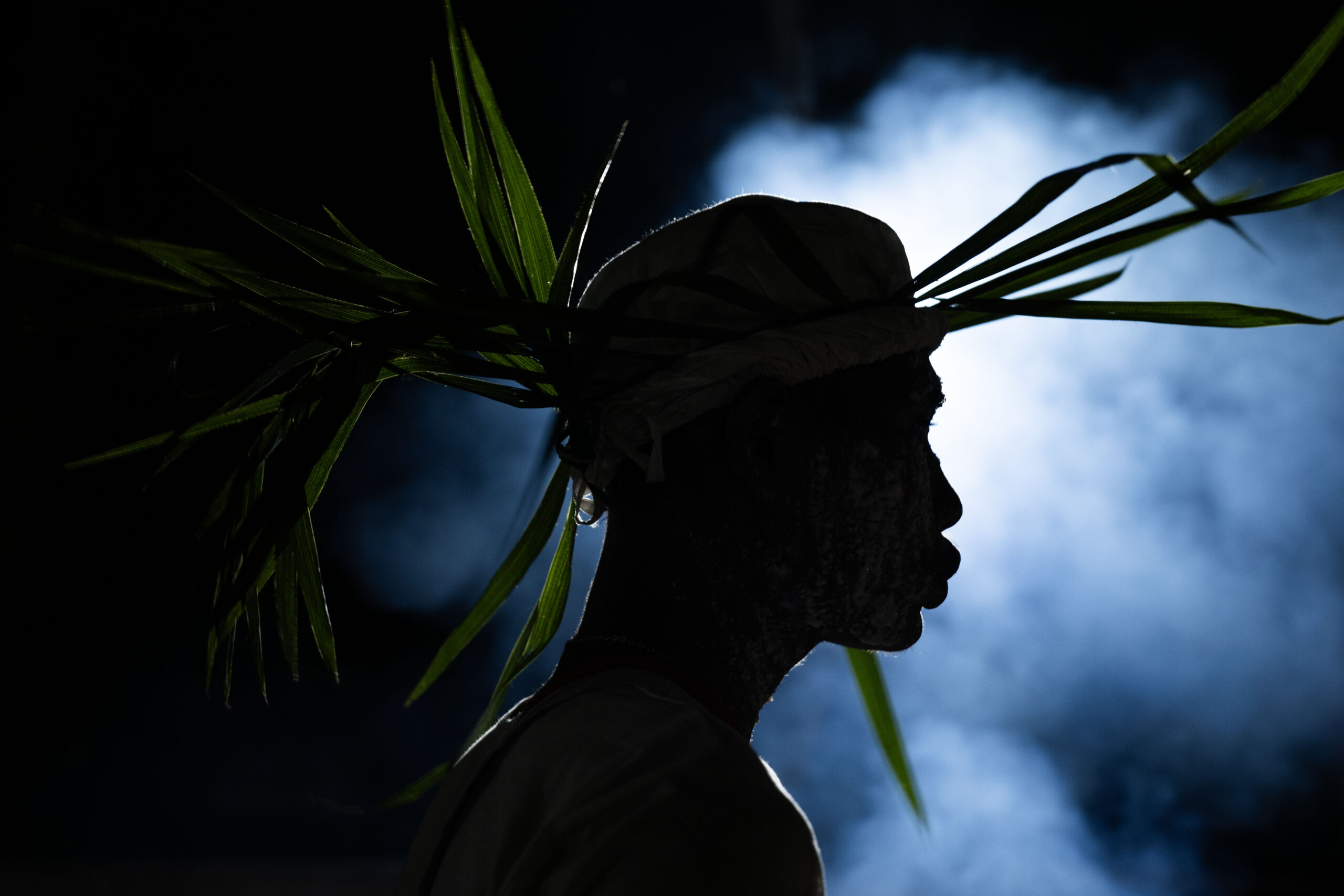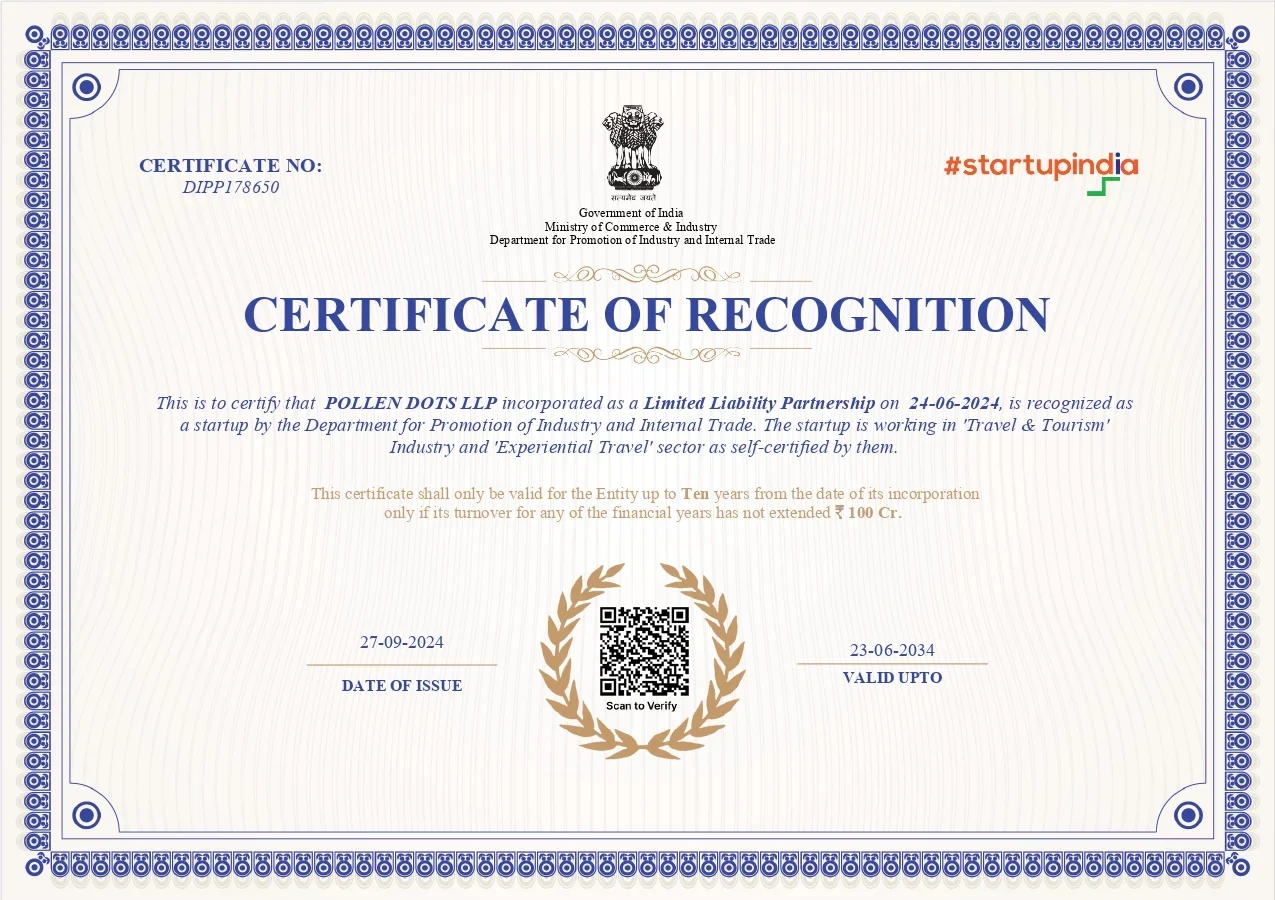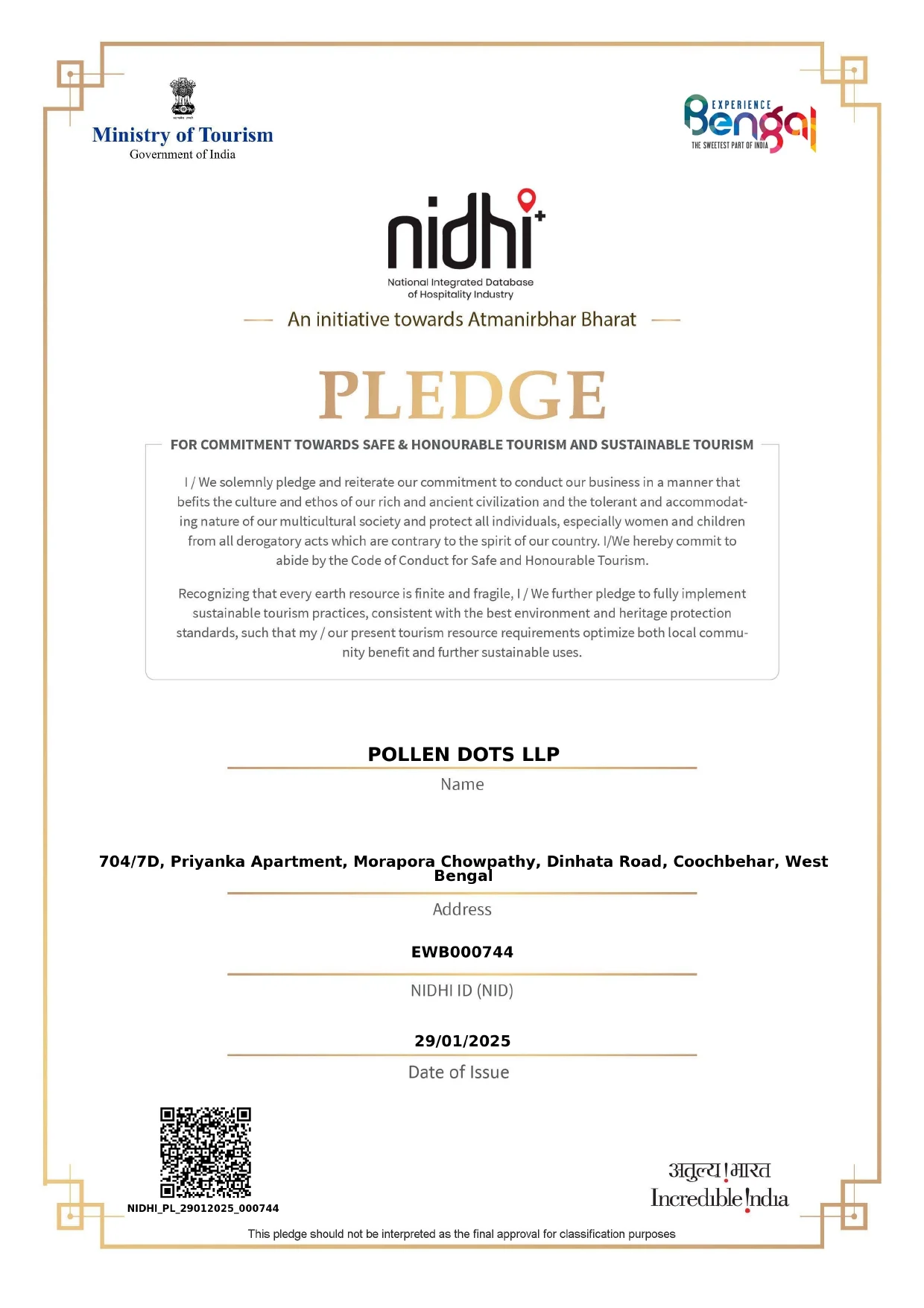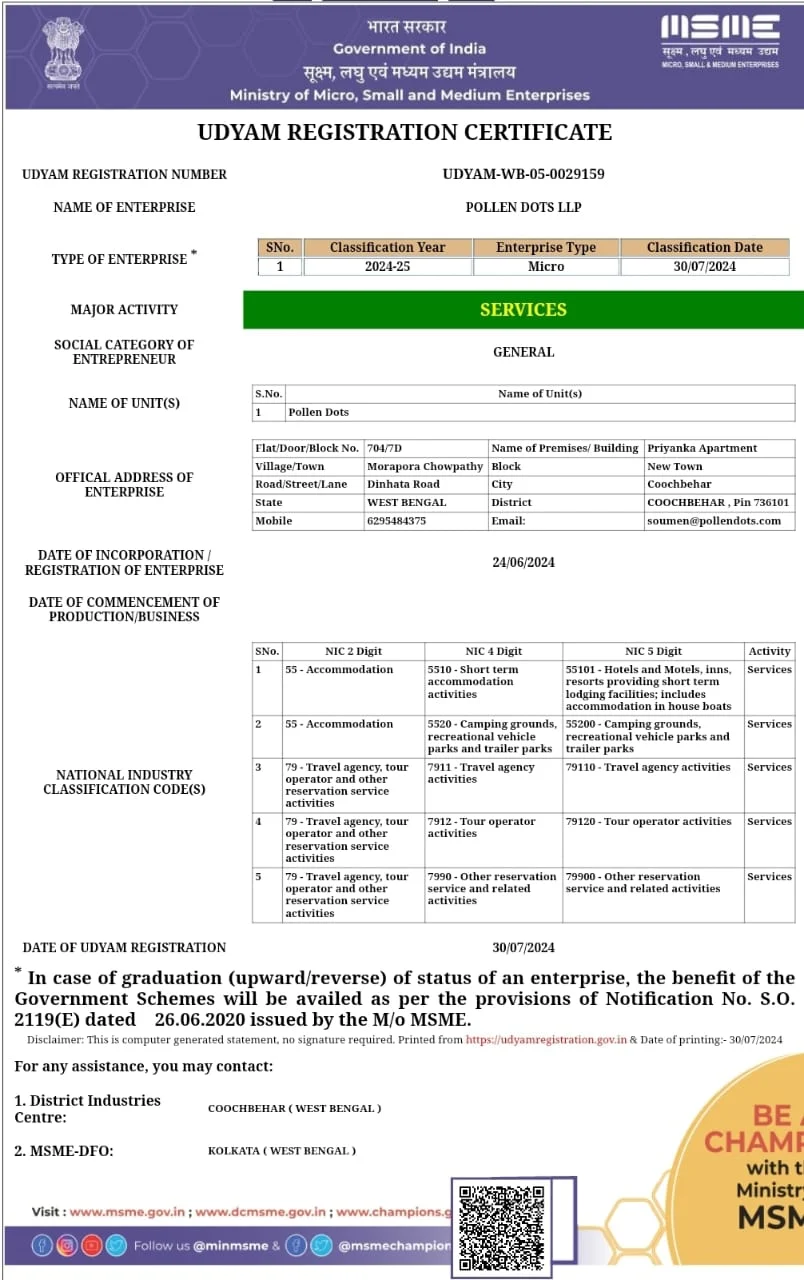Chandubi’s lake may be its centrepiece, but listen closer — it’s the forest that keeps the rhythm. When dusk falls over this quiet edge of Assam, the Rabha, Bodo, and Garo communities light their fires, tune their drums, and dance not for an audience — but for the land, the harvest, and the gods.
In Chandubi, dance is not performance. It is permission — to feel, to celebrate, to belong.
Dancing Between Earth and Sky
Local festivals like the Bogai Festival (Rabha) and Domashi (Bodo) are less about grand stages and more about sacred clearings. Young men and women in handwoven attire gather barefoot on earth that has grown their food, faced their floods, and heard their stories.
The Rabha dances often imitate animals, seasons, or everyday life — one step for planting, one sway for rain, and a beat for the sun. Bodo dance includes rhythmic hip movements and slow turns that mirror the circular logic of seasons.

We don’t practise,” says a local teacher, “we remember. Dance is how we remember who we are.”
Instruments That Speak Without Words
The forest lends its materials:
- The Kham (drum) made from tree bark and animal hide.
- The Siphung (bamboo flute) whose notes mimic the forest’s breath.
- The Serja (a string instrument) that carries the emotional weight of a thousand monsoons.
These are not polished orchestra tools — they’re forest tools. And their sound isn’t rehearsed — it’s remembered.
Snippets from the Grove
- The Dance Begins with the Fire:
At every gathering, a fire is lit first. Dancers move around it slowly, letting the rhythm build like rainfall. The fire is witness, not spotlight. - Children Learn by Watching:
There are no classes. Children sit with elders, copy moves, and inherit rhythm like they inherit soil. - Dance to Heal:
Some women believe a slow dance around the lake during full moon helps ease body pains and childbirth complications — “The lake knows,” they say.

When Trees Dance Too
During Domashi, a local tree known as Dighol Bon is decorated and danced around. It is not cut, never harmed — only honoured. The community believes that even trees have spirit rhythms, and when treated with music and respect, they offer better fruit and shade the next year.
Know Before You Go
- Festival timings: Check local calendars; Rabha and Bodo festivals often follow lunar schedules.
- Stay options: Eco-huts and tribal homestays near the lake — some even include dance demonstrations and drumming sessions.
- Cultural tip: Do not interrupt dancers for photos. Watch quietly, participate only if invited, and thank the drummer after.
In Chandubi, dance is not escape — it is return. Every drumbeat echoes a harvest remembered, a storm survived, a story retold. To witness it is to realise: silence is not the opposite of music. It is its beginning.
Some places speak through language — Chandubi speaks through rhythm.”
















